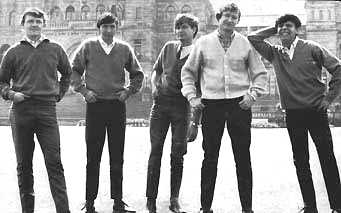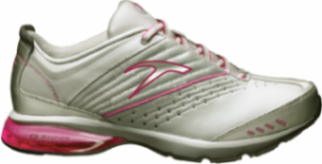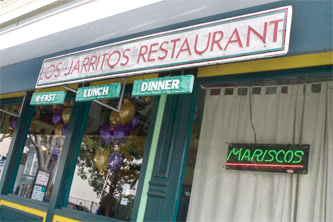Entries in Trademark Infringement (368)
Ninth Circuit Affirms Dismissal of Perfect 10's Secondary Trademark Liability Claims
On July 3, the Ninth Circuit affirmed the Northern District of California’s dismissal of Perfect 10, Inc.’s secondary trademark liability claims against Visa International Service Association and affiliated banks and data processing services.
Perfect 10 publishes the magazine “PERFECT 10” and operates the subscription Web site www.perfect10.com, which it claims features “tasteful copyrighted images of the world’s most beautiful natural models.” Perfect 10 claims copyrights in the photographs published in its magazine and on its Web site, federal registration of the PERFECT 10 trademark, and blanket publicity rights for many of the models appearing in the photographs. It alleges that numerous Web sites based in several countries have stolen its proprietary images, altered them, and illegally offered them for sale online. Instead of suing the direct infringers, Perfect 10 sued the defendant financial institutions that process credit card payments to the allegedly infringing Web sites.
In December 2004, the Northern District of California granted the defendants’ motion to dismiss plaintiff’s claims, which Perfect 10 appealed. With respect to Perfect 10’s trademark claims, the Ninth Circuit found as follows:
“To be liable for contributory trademark infringement, a defendant must have (1) ‘intentionally induced’ the primary infringer to infringe, or (2) continued to supply an infringing product to an infringer with knowledge that the infringer is mislabeling the particular product supplied. When the alleged direct infringer supplies a service rather than a product, under the second prong of the test, the court must ‘consider the extent of control exercised by the defendant over the third party’s means of infringement. For liability to attach, there must be ‘[d]irect control and monitoring of the instrumentality used by a third party to infringe the plaintiff’s mark.’”
The Ninth Circuit concluded Perfect 10 failed to plead a viable claim under either prong of the test. “First, it has not pled facts showing that Defendants ‘intentionally induced’ infringement of Perfect 10’s mark. …”
“Second, Perfect 10 has failed to allege facts sufficient to show ‘[d]irect control and monitoring of the instrumentality used by a third party to infringe the plaintiff’s mark. Perfect 10 claims that the ‘product’ or ‘instrumentality’ at issue here is the credit card payment network through which Defendants process payments for infringing material. As discussed at length above [in connection with the court’s analysis of plaintiff’s copyright claims], this network is not the instrument used to infringe Perfect 10’s trademarks; that infringement occurs without any involvement of Defendants and their payment systems. Perfect 10 has not alleged that Defendants have the power to remove infringing material from those websites or directly stop their distribution over the Internet. At most, Perfect 10 alleges that Defendants can choose to stop processing payments to these websites, and that this refusal might have the practical effect of stopping or reducing the infringing activity. This, without more, does not constitute ‘direct control.’”
The Ninth Circuit also affirmed dismissal of Perfect 10’s claim for vicarious trademark infringement because defendants’ relationship with the alleged infringers does not establish a “symbiotic” relationship or “joint ownership or control” for trademark purposes. In the Ninth Circuit’s words, “Defendants process payments to these websites and collect their usual processing fees, nothing more.”
Judge Alex Kozinski disagreed with these conclusions. In his dissent, he wrote: “Without defendants’ payment systems, the infringers would find it much harder to peddle their infringing goods.” Therefore, he found that Perfect 10 had pled facts sufficient to state a claim for contributory trademark infringement.
As for vicarious trademark infringement, Judge Kozinski wrote: “plaintiff alleges that the Stolen Content Websites cannot operate without the use of credit cards, while defendants make huge profits by processing these illegal transactions. If this is not symbiosis, what is?” Based on this finding, he found the majority also erred in absolving defendants of vicarious trademark infringement.
The case cite is Perfect 10, Inc. v. Visa Int’l Svc. Ass’n, __ F.3d __, 2007 1892885, No. 05-05170 (9th Cir.).
Seattle Band Name Dispute: The Wailers (Washington) vs. The Wailers (Jamaica)
We have a juicy-sounding band name dispute right here in Seattle: members of the historic Washington band called “The Wailers” brought suit in the Western District June 20 against Bob Marley’s historic band of the same name. The complaint states that plaintiffs John M. “Buck” Ormsby and Kent E. Morrill have been performing as “The Wailers” (Washington) since 1959. Plaintiffs allege they obtained federal registrations for the WAILERS service mark in January 2003, which they say Aston “Family Man” Barrett and the other members of “The Wailers” (Jamaica) have infringed and diluted.
According to the complaint: “The Wailers have influenced the musical careers of bands such as The Beatles, Jimi Hendrix, The Sonics, the Rolling Stones, and Paul Revere and The Raiders. Most notably, The Wailers’ performance of the song ‘Louie Louie’ inspired The Kingsmen of Portland Oregon to record the same song.”

The Wailers (Washington) in 1960s
Photo credit: Pacific Northwest Bands
The complaint states defendants’ original group was formed in Jamaica in 1963 by Bob Marley, Peter Tosh, and Bunny Wailer. It alleges: “On or about 1974, the original group broke up, and Defendant Barrett and Bob Marley formed the musical group Bob Marley and the Wailers. Following the death of Bob Marley in 1981, The Wailers, including defendant Barrett, continued to stage live musical performances as a group, initially as The Bob Marley Wailers, and eventually simply The Wailers. This musical group has continued to stage live musical performances as The Wailers to the present day.”

The Wailers (Jamaica)
“The Wailers” (Washington) claim “The Wailers” (Jamaica)’s use of the same mark is likely to cause confusion and to dilute plaintiffs’ famous mark. “The Wailers” (Washington) also claim “The Wailers” (Jamaica) have wrongfully obtained the registration for wailers.com and have used the domain name to market, promote, and sell the entertainment services of “The Wailers” (Jamaica), causing confusion in the industry and among the general public.
“The Wailers” (Jamaica) have not yet answered the complaint.
The case cite is Ormsby v. Barrett, No. 07-5305 (W.D. Wash.)
Cafes Settle Dispute Over MOONRAY Name and Mark
The Seattle Times reported June 23 that the Portland, Ore.-based Moonstruck Chocolate Co. and Duvall, Wash.-based Moonray Espresso Corp. have settled their dispute over the trademark MOONRAY. Terms of the settlement are confidential, but the Times reports the suburban Seattle cafe will change its name. It states the owner, Mike Snow, recently took down his Web site at www.moonrayespresso.com and temporarily closed the cafe’s doors to decide his next step.
 The case was widely reported in the Northwest press. STL discussed the case here, here, and here.
The case was widely reported in the Northwest press. STL discussed the case here, here, and here.
By way of disclosure, STL’s publisher represented Moonray in the litigation.
The case cite is Moonstruck Chocolate Co. v. Moonray Espresso Corp., No. 07-0091 (W.D. Wash.).
Brooks and Nike Settle Suit over TAILWIND Shoe Logo
On June 19, Brooks Sports, Inc., filed a Notice of Dismissal voluntarily dismissing the infringement and unfair competition claims it filed in the Western District last month against Payless Shoesource, Inc., Exeter Brands Group, LLC, and Nike, Inc. Brooks had alleged that defendants’ TAILWIND shoe logo was confusingly similar with Brooks’ shoe logo. STL blogged about the suit here.
The Olympian newspaper from Olympia, Washington, reports: “The terms of the settlement are confidential. But Nike spokesman Vada Manger said the company will use a revised logo for its Tailwind products going forward.”
Here are the original shoes in question:
Before Settlement: Tailwind (top) and Brooks running shoes
(photo credit: OregonLive.com/The Oregonian)
The Oregonian’s blog, Playbooks & Profits, reports that after the settlement, defendants’ TAILWIND logo will look like this:

After Settlement: Tailwind’s new look
(photo credit: OregonLive.com/The Oregonian)
As Playbooks & Profits put it, the “Only ones who might sue over this one might be an ice-axe manufacturer.” Of course, trademark practitioners could pick that comment apart but it’s pretty amusing so I’ll leave it alone.
The case cite is Brooks Sports, Inc. v. Payless Shoesource, Inc., No. 07-0695 (W.D. Wash).
San Francisco Paper Covers JARRITOS Trade Name Case
San Francisco’s monthly Mission Dispatch today reported on the JARRITOS decision from the Northern District of California. The case involved the neighborhood Los Jarritos Mexican restaurant that was sued by the well-known Mexican soft drink maker, Jarritos, Inc., over its JARRITOS name and mark. “Jarritos” translates to “little jars.” On May 2, the court dismissed Jarritos’ infringement and dilution claims.
The Mission Dispatch says Jarritos plans to appeal.

STL discussed the decision here. I was interviewed for the story and STL garnered a plug.
Photo Credit: Mission Dispatch